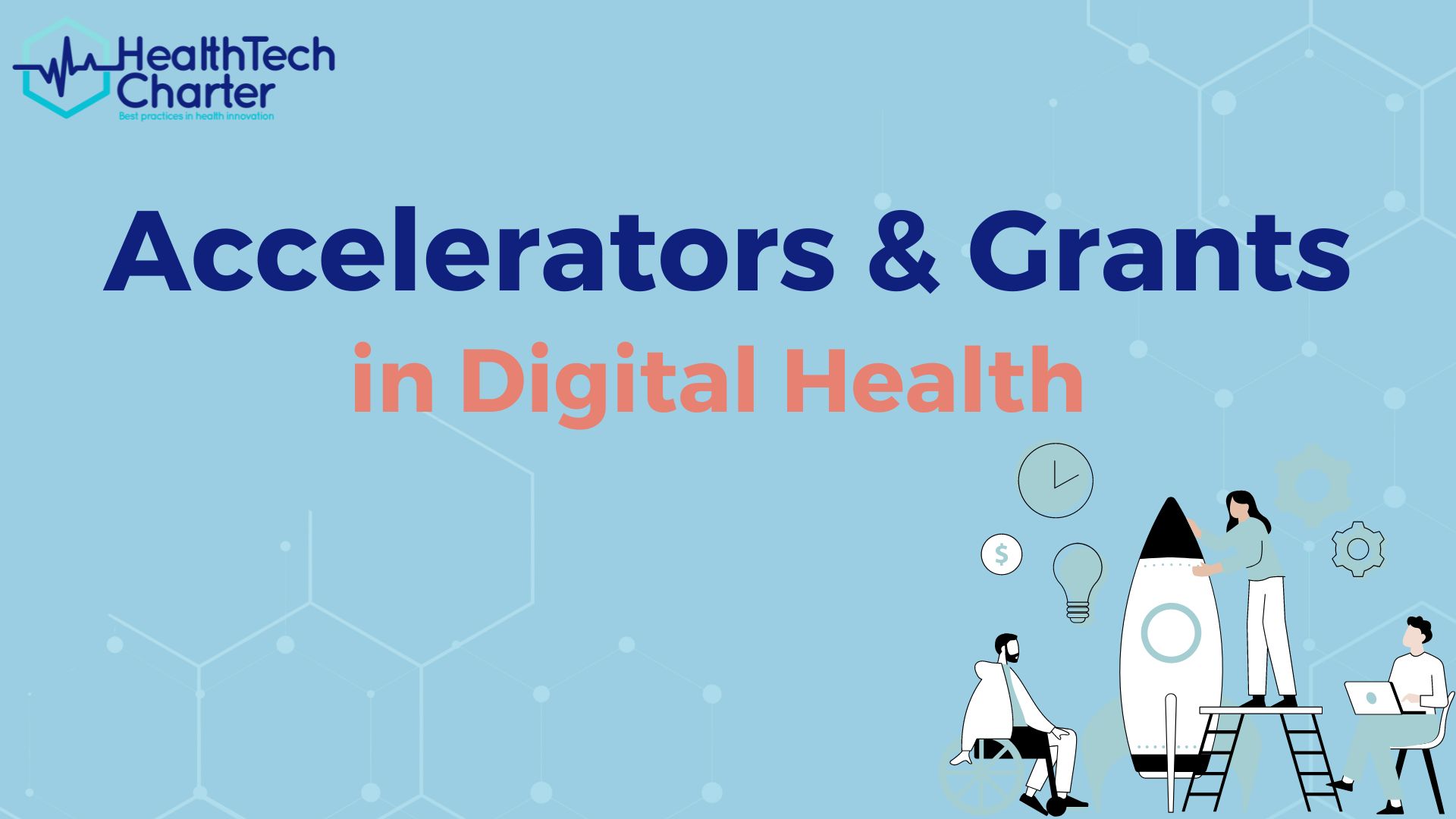Accelerators and grants play a pivotal role in the development of new technologies, spearheading the advance in digital health innovation. Launched in December 2021, the HealthTech Charter serves as a best practice repository of the most empowering policies and measures for digital health innovation across Europe. It provides an opportunity to shape Europe into a hub for digital health innovation and creates benchmarks to inform policy makers what innovators need to succeed. Accelerators and grants constitute the sixth topic explored in the HealthTech Charter. We take a closer look at examples of innovators and grants that have stimulated groundbreaking achievements in health.
Digital Health Accelerators
Accelerators offer early-stage companies support to grow and scale their innovations through mentorship, education and financing. Startups take part in an accelerator for a fixed-period of time and are equipped with rapid, immersive support aimed at accelerating the potential of their company – compressing what would normally be years of education into months of learning-by-doing. With the right combination of funding, mentorship, and networking, accelerators can propel young startups and their innovations to be successful in the market.
The NHS Innovation Accelerator (NIA) does just that by placing a unique focus on both the development of the innovation and growth of the entrepreneur. According to PEP Health, a startup running an AI-run patient experience platform, “The NIA is helping to create the conditions and cultural change necessary for proven innovations to be adopted faster and more systematically through the NHS.”
HealthTech Funding Mechanisms
Alongside accelerators, digital health startups require financial backing to progress an idea into a marketable product. From research, growing a team, and operating costs, the importance of funding is crucial for the success of a startup. Creating more opportunities for accessing financial grants at the European and national level is key to the future of digital health innovation in Europe.
With nearly €80 billion in funding, Horizon 2020 was the biggest financial instrument of the European Union’s research and innovation funding programme between 2014 – 2020.t. Horizon Europe followed in January 2021, increasing the budget to €95.5 billion – aiming to tackle climate change, achieve the UN’s Sustainable Development Goals, and boost the EU’s competitiveness and growth.
However, Horizon Europe grants are known to be highly prestigious and competitive – navigating application procedures are complex. Tired of Cancer, a startup working to tackle cancer fatigue, shares that working with such grants “can be a squeezing straitjacket that does not move with the changing insights you have as a startup. The challenge upfront lies in estimating in advance as best as possible what exactly the next few years will bring and what exactly the plans and execution will look like. Where, as a start-up, you need to have a certain degree of agility and that means that your scope and planning can change on the basis of progressive insight.”
Digital health accelerators and funding allow innovators to transform European healthcare systems by improving patient outcomes and enhancing clinical decision-making. As referred to in the HealthTech Charter, there is still room for improvement in making these tools more inclusive and responsive to the needs of startups.
Interested in having a conversation or collaborating on the HealthTech Charter? Don’t hesitate to reach out to us here!

